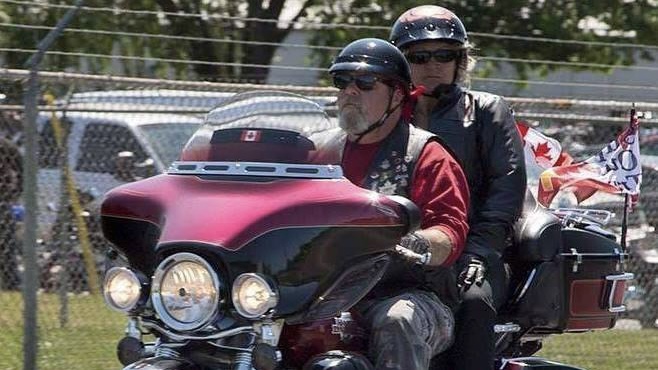My aunt Laura Sacco was born on Feb. 28, 1962, in Georgetown, Ont. She was a partner to Kelly Durant for 33 years and pet mom of Louie and Pearl.
I remember my aunt for the good times we shared at family events, or when she watched over me after school. She would surprise me with stuffed animals, always had my favorite shows recorded for me to watch, and gave me snacks I never had at home.
Aside from being my aunt, she was my friend, and I will forever feel pretty cool being friends with a biker.
She was diagnosed with laryngeal cancer in late 2020.
Laryngeal cancer involves the growth of malignant cancer cells in the tissues of the larynx. Tobacco products and excessive alcohol consumption can increase the risk of laryngeal cancer.
The larynx is part of the respiratory system which is a tube that lets air pass from your throat to the trachea on its way to the lungs.
In order to try to remove the cancer, she received a total laryngectomy, which is the removal of the voice box.
Despite receiving radiation and chemotherapy, her cancer progressed to terminal esophageal cancer.
The cancer caused her to be in extreme pain.
She was unable to eat, drink, talk, and therefore had no quality of life. This led to her making the ultimate choice to die with medical assistance in Trenton, Ont., on Oct. 28.
Medical assisted suicide or as it’s now referred to here in Canada as Medical Assistance in Dying (MAID) wasn’t always available here.
The federal government passed federal legislation that allows eligible Canadian adults to request medical assistance in dying in June 2016.
The process of medical assistance in dying involves a doctor administering medication at their patient’s request to relieve their suffering by facilitating their death.
MAID requires patients to be eligible for health services funded by the federal government, a province or territory, or during the applicable waiting period.
The patient is required to be at least 18 years old, mentally competent and have a grievous and irremediable medical condition.
They must also make a voluntary request for MAID that isn’t the result of outside pressure or influence, and give informed consent.
Generally, visitors to Canada are not eligible for medical assistance in dying.
According to the federal government, the number of cases of medical assistance in dying in 2021 represents a growth rate of 32.4 per cent in 2020.
After meeting the requirements for MAID, Laura lived and left her life on her own terms.
Although she will be deeply missed by my family, the hardest part was watching her suffer, which is why the family supported her decision.
It’s never easy losing a loved one, but my family and I are glad she was able to make her own choice and is now at peace.
With this being said, MAID is not a decision to take lightly and must be carefully considered by those who qualify for it.
Those suffering from suicidal thoughts or grieving the loss of a loved one can call hotlines for help like the suicide prevention hotline: 1-833-456-4566.

